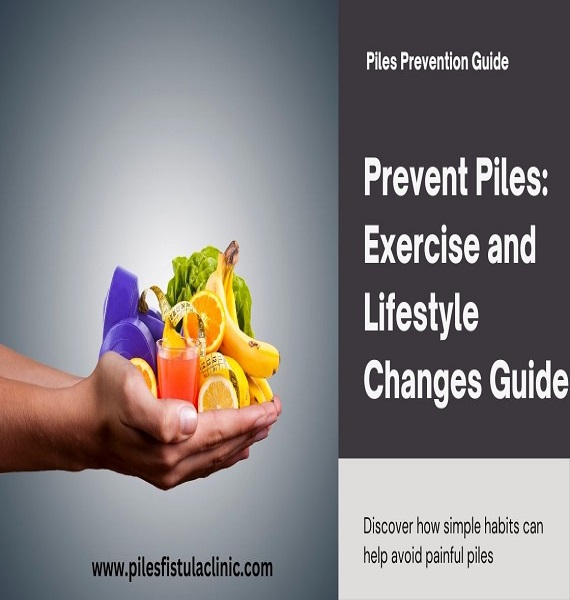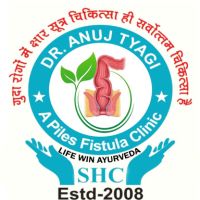
Exercise and Lifestyle Changes to Prevent Piles
Welcome to Piles Fistula Clinic in Ghaziabad, where we specialize in the prevention and treatment of piles (hemorrhoids) under the expert guidance of Dr. Anuj Tyagi. Piles are a common but often painful condition that can significantly affect your quality of life.
While there are various treatments available, incorporating specific exercises and lifestyle changes can play a crucial role in preventing piles from developing or recurring. In this comprehensive guide, we will explore the best practices you can adopt to maintain a healthy lifestyle and keep piles at bay.
Understanding Piles
Piles, also known as hemorrhoids, are swollen veins in the lower rectum and anus. They can be internal (inside the rectum) or external (under the skin around the anus). Common symptoms include:
- Pain and discomfort during bowel movements
- Itching or irritation around the anal region
- Swelling and inflammation
- Bleeding during bowel movements
- Formation of lumps near the anus
Several factors contribute to the development of piles, including chronic constipation, prolonged sitting, obesity, and a low-fiber diet. Adopting a healthy lifestyle and regular exercise regimen can help mitigate these risk factors and prevent piles.
Exercise to Prevent Piles
Regular physical activity is essential for maintaining overall health and preventing conditions like piles. Here are some effective exercises that can help:
-
Walking:
- Walking is a simple yet effective way to improve digestion, reduce constipation, and enhance blood circulation. Aim for at least 30 minutes of brisk walking daily.
-
Yoga:
- Yoga can improve digestion, reduce stress, and enhance circulation. Specific poses like Pawanmuktasana (Wind-Relieving Pose), Malasana (Garland Pose), and Vajrasana (Thunderbolt Pose) are particularly beneficial for preventing piles.
-
Pelvic Floor Exercises:
- Strengthening the pelvic floor muscles can help prevent piles by improving bowel control and reducing strain during bowel movements. Kegel exercises, which involve contracting and relaxing the pelvic muscles, are highly effective.
-
Aerobic Exercises:
- Activities like jogging, swimming, and cycling can improve cardiovascular health, aid digestion, and prevent constipation, thereby reducing the risk of piles.
-
Strength Training:
- Incorporating strength training exercises can improve muscle tone and overall fitness. Focus on core exercises that support the abdominal and pelvic regions.
Lifestyle Changes to Prevent Piles
In addition to regular exercise, making specific lifestyle changes can significantly reduce the risk of developing piles. Here are some key recommendations:
-
High-Fiber Diet:
- A diet rich in fiber can prevent constipation and promote regular bowel movements. Include plenty of fruits, vegetables, whole grains, legumes, and nuts in your diet. Foods like apples, pears, broccoli, carrots, oatmeal, and lentils are excellent sources of fiber.
-
Stay Hydrated:
- Drinking plenty of water helps soften stools and promotes regular bowel movements. Aim for at least 8-10 glasses of water daily. Herbal teas and fresh fruit juices can also contribute to your fluid intake.
-
Avoid Straining:
- Straining during bowel movements puts pressure on the veins in the rectum and anus, leading to piles. Practice healthy bowel habits by not delaying the urge to pass stools and avoiding prolonged sitting on the toilet.
-
Regular Bathroom Routine:
- Establishing a regular bathroom routine can help train your body for regular bowel movements. Try to go at the same time every day, preferably in the morning, to promote consistency.
-
Proper Toilet Posture:
- Adopting the correct posture during bowel movements can reduce strain. Elevating your feet on a small stool can help align the rectum in a more natural position, making it easier to pass stools.
-
Maintain a Healthy Weight:
- Obesity is a significant risk factor for piles. Maintaining a healthy weight through a balanced diet and regular exercise can reduce the pressure on the rectal veins and prevent piles.
-
Avoid Prolonged Sitting:
- Sitting for extended periods can increase the pressure on the veins in the anal region. If your job requires prolonged sitting, take regular breaks to stand, stretch, and move around.
-
Stress Management:
- Chronic stress can affect digestion and bowel habits. Incorporating stress-relieving activities like yoga, meditation, deep breathing exercises, and hobbies can help maintain mental and digestive health.
-
Limit Heavy Lifting:
- Heavy lifting can strain the abdominal and rectal muscles. If lifting is unavoidable, use proper techniques by bending your knees and keeping your back straight to reduce the strain on your lower body.
-
Avoid Spicy Foods and Alcohol:
- Spicy foods and alcohol can irritate the digestive tract and exacerbate symptoms of piles. Moderation is key, and it’s best to avoid these triggers if you are prone to piles.
Case Study: Successful Prevention of Piles at Piles Fistula Clinic
At Piles Fistula Clinic, we have helped numerous patients prevent the recurrence of piles through tailored exercise and lifestyle modification plans. One such case is of Mrs. Sunita, a 38-year-old patient who had a history of recurrent piles.
Initial Assessment: Upon consultation with Dr. Anuj Tyagi, a comprehensive assessment of Mrs. Sunita’s lifestyle, diet, and bowel habits was conducted. It was determined that her sedentary lifestyle and low-fiber diet were significant contributors to her condition.
Treatment Plan:
- Exercise Regimen: Mrs. Sunita was advised to incorporate daily brisk walking, yoga sessions focusing on poses beneficial for digestion, and pelvic floor exercises into her routine.
- Dietary Changes: A high-fiber diet plan was created, including plenty of fruits, vegetables, and whole grains. She was also advised to increase her water intake.
- Lifestyle Modifications: Recommendations included avoiding prolonged sitting, maintaining a proper toilet posture, and managing stress through meditation.
Results: Within three months, Mrs. Sunita experienced significant improvement. Her bowel movements became regular and strain-free, and she reported a noticeable reduction in the symptoms of piles. Continued adherence to the prescribed lifestyle changes helped her prevent the recurrence of piles.
Why Choose Piles Fistula Clinic?
At Piles Fistula Clinic, we prioritize individualized care and holistic treatment approaches. Here’s why you should choose us for preventing and managing piles:
- Expertise of Dr. Anuj Tyagi: With extensive experience in treating piles, Dr. Tyagi provides personalized treatment plans tailored to your specific needs.
- Holistic Approach: We focus on addressing the root cause of the condition, ensuring long-term relief and overall well-being.
- Comprehensive Care: From initial consultation to post-treatment care, we offer comprehensive support to our patients throughout their healing journey.
Conclusion
Preventing piles involves a combination of regular exercise, dietary modifications, and lifestyle changes. At Piles Fistula Clinic, under the expert care of Dr. Anuj Tyagi, we offer effective and holistic solutions to help you maintain a healthy lifestyle and prevent the onset or recurrence of piles.
For more information or to schedule a consultation, visit www.pilesfistulaclinic.com or contact us at +91-8595786909. Embrace a healthier lifestyle with Piles Clinic in Ghaziabad and take the first step towards a piles-free life.
